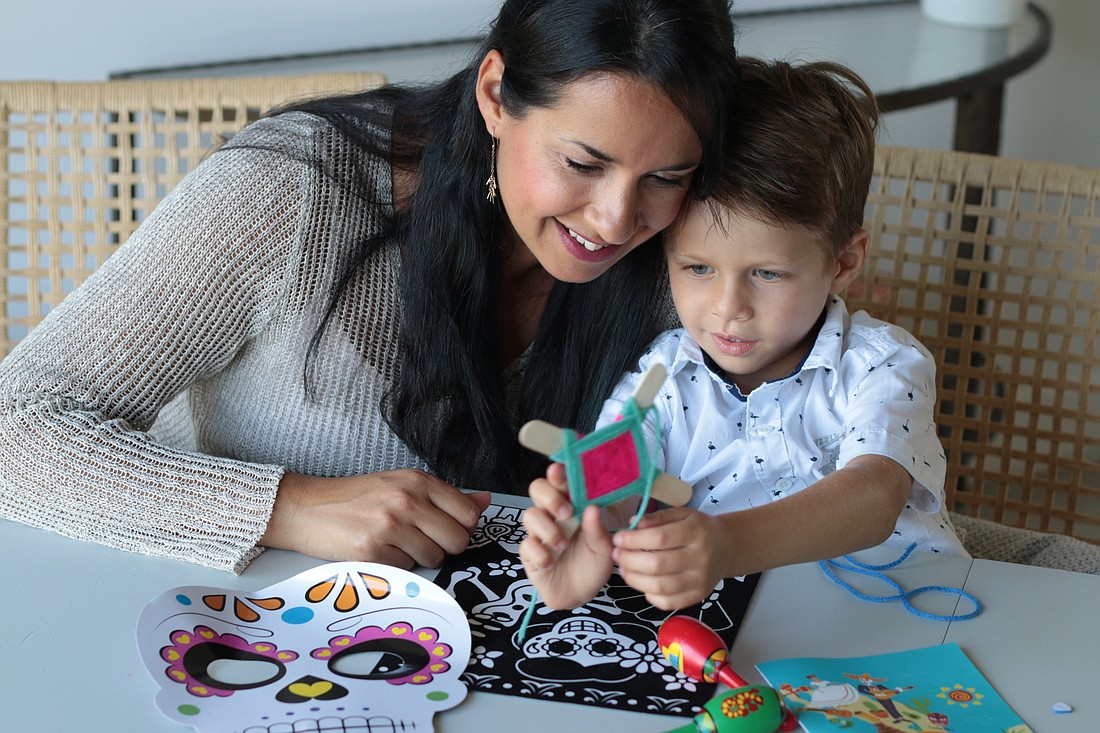- July 26, 2024
-
-
Loading

Loading

When husband-and-wife duo Akeelah Kuraishi and Tim Minnick first put their product out to market — a subscription box for families about countries worldwide — they had a preexisting idea of who their customers would be.
Kuraishi, originally from England, says they assumed customers for their business, Little Global Citizens, would be like them: frequent travelers from big cities. But a lot of their clients turned out to be from smaller towns — people who wanted to expose their kids to different cultures.
In building Little Global Citizens, Kuraishi and Minnick are incorporating that lesson — never assume — into a host of other entrepreneurial lessons learned. The list includes staying flexible; embracing change; heeding feedback; and harnessing their understanding of digital advertising.
“You have to have a strong brand message and a strong brand voice, and there has to be real authentic meaning behind what you’re doing. And if you have that, it will resonate with the right people.” — Akeelah Kuraishi, CEO and co-founder, Little Global Citizens
For over 10 years, Kuraishi and Minnick worked in digital advertising in Chicago. In 2011, they quit their jobs, bought one-way tickets to Beijing and set off on a 13-month backpacking trip. “Our goal was to go deep in the countries, and learn as much as we could about what it would be like to live in different countries,” Kuraishi says.
Now Bradenton-based, Kuraishi says an idea started to percolate at the back of her mind several years ago. “We had the burning desire to show people are the same,” she says, and how families across the world share the same aspirations. Plus, she wanted her sons, now four and three, and other children to build global perspectives.
Enter Little Global Citizens. Kuraishi, who used to work for media website BuzzFeed, quit her job at the end of 2017 and began to pursue her business idea.
She dove into the subscription box industry, gathering as much advice and information as she could from books, articles and forums. “The subscription industry has been booming,” she says. “It feels very much to me like this is a good model for families to have something that is delivered to them and it’s in manageable chunks and it’s curated and everything is brought together in one package. It seemed like a natural way to deliver this information.”
Little Global Citizens worked with an educational advisor who gave them direction on whether box contents — books, crafts, games and activities — was age appropriate and addressed everything from motor skills to imagination skills. The first box, mailed out in May 2018, was about Thailand, where the couple spent six weeks.
Customers find Little Global Citizens through the company’s website, social media and digital advertising. Word of mouth has been an asset as well. Families share photos of themselves doing the activities in the boxes on social media, leading to new customers. Kuraishi says they’re also working with influencers. “We, like every other company out there, can’t ignore them.”
Boxes are about $32 each with options to pre-pay for multiple months and add on boxes for siblings. Kuraishi declines to disclose customer numbers for Little Global Citizens, only to say it's grown enough to get help from a part-time product manager.
Understanding big-picture marketing concepts has been helpful, too, in finding new customers. “You have to have a strong brand message and a strong brand voice, and there has to be real authentic meaning behind what you’re doing,” she says. “And if you have that, it will resonate with the right people.”
Along the way, customer feedback has been crucial to Little Global Citizens. “You have to be nimble and willing to test things and see what works for you and your audience,” Kuraishi says.
She and Minnick, who works full time and helps with Little Global Citizens in the evenings and on weekends, send surveys to customers. One piece of feedback? There was so much in each box that families weren’t able to get through it every month. They decided to switch from a monthly box to a bimonthly model. The change, she says, also frees her up to do more business tasks. When boxes shipped each month, it was hard to keep up. “It was like constantly being on a treadmill,” she says.
Competition includes other worldly subscription boxes such as Little Passports. Kuraishi say Little Global Citizens sets itself apart by focusing on the culture and lifestyle of children in other countries. The company also connects with people in the countries being featured to get an authentic viewpoint.
Outside the business, Kuraishi talks about ideas and issues with a group of mentors during a regular conference call. “It’s a pretty tight group of mainly women that I connect with on a weekly basis and we all bounce ideas off each other.”
Kuraishi is also working a key entrepreneurial mantra: delegation.
“As a new business owner, one of the things I’m still learning is releasing things that I don’t need to do,” she says. “At some point it’s critical. You have to or you can’t grow.”